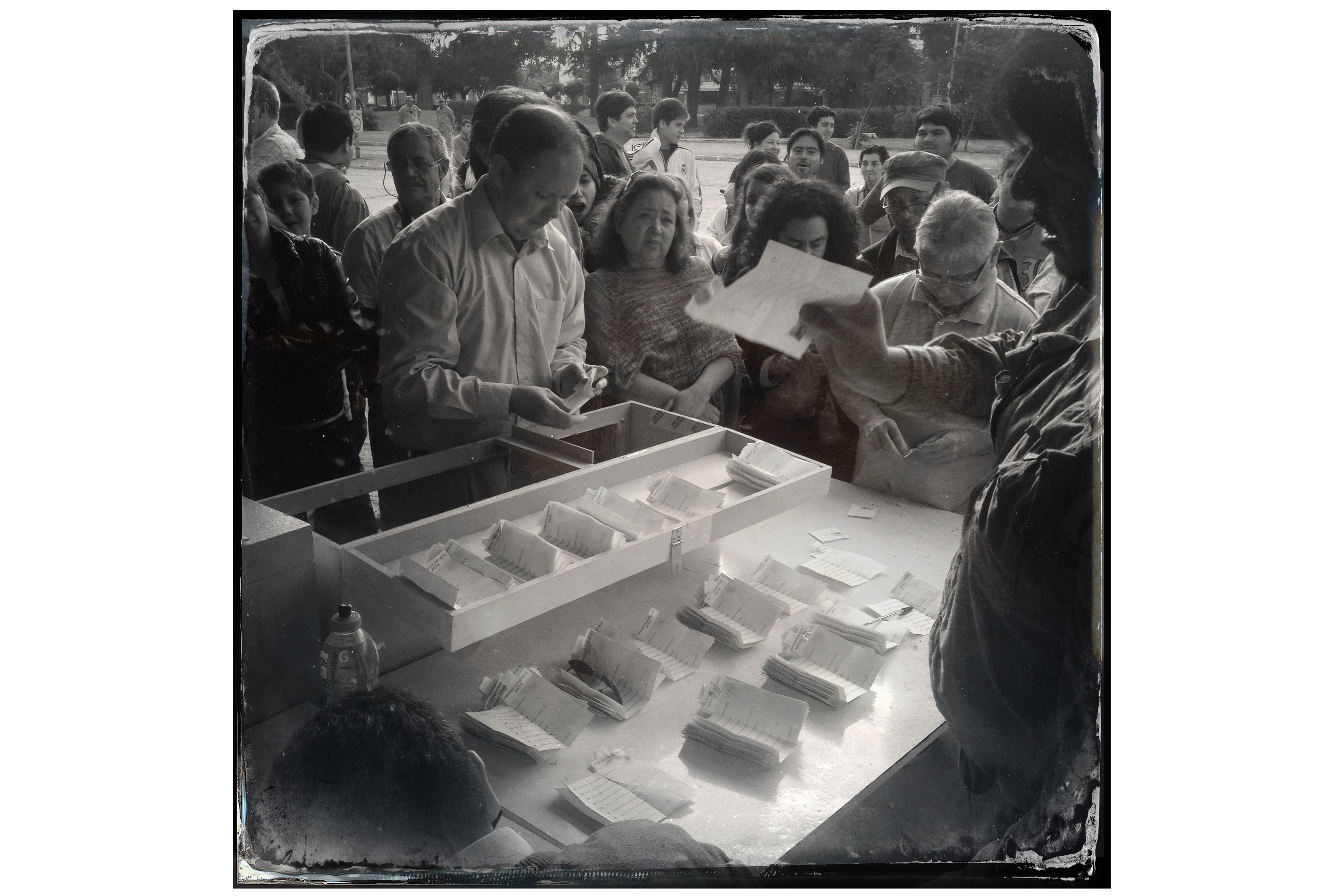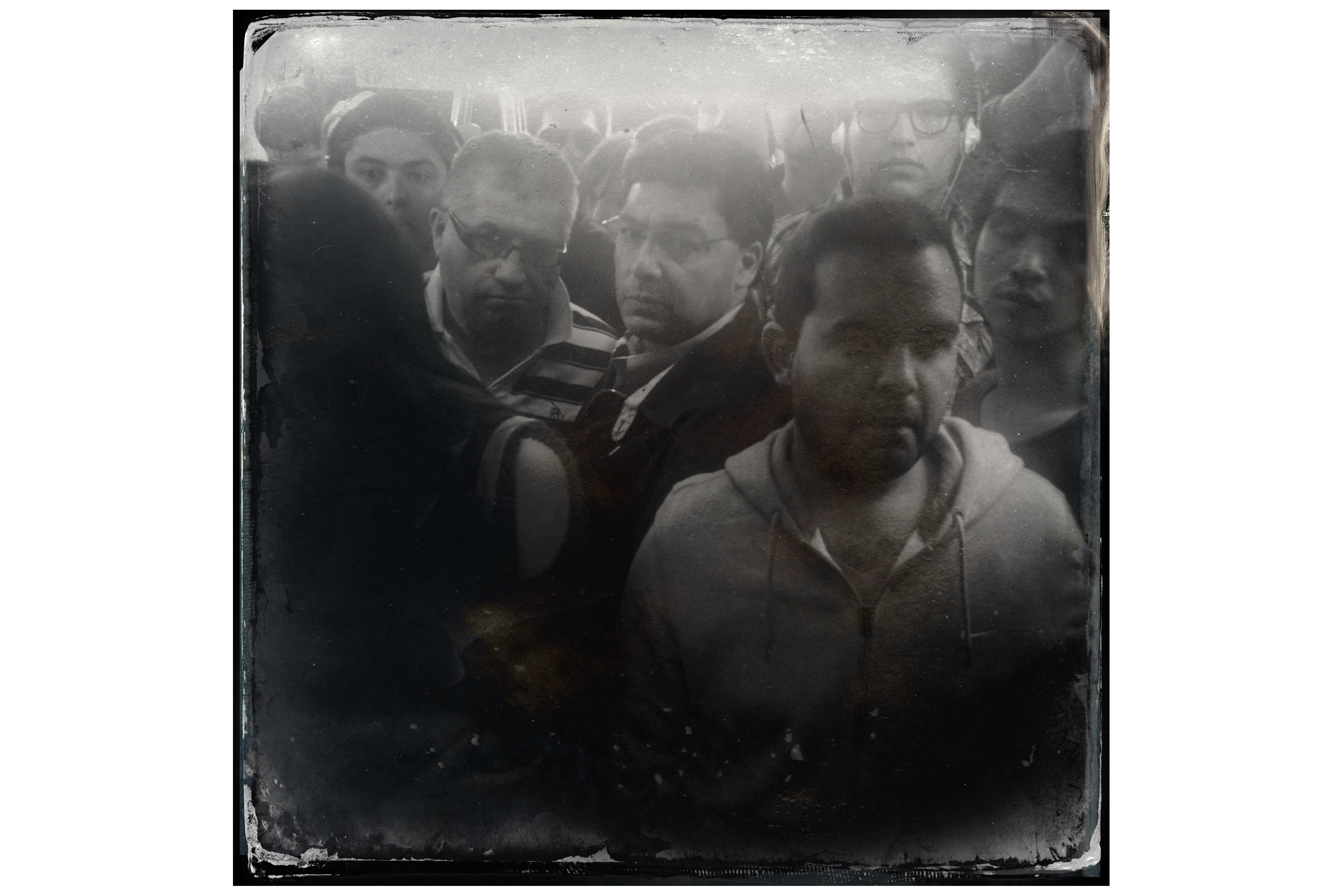
"It's important not to be married to anyone in politics," Claudio Contreras declared, the mid-afternoon sun glinting off his aviator sunglasses and his slicked back black hair as he turned to look at me from the front seat of his taxi.
Contreras was driving me to meet Jorge Reizin, a successful businessman of Russian Jewish descent and a self-described extreme right winger (He later modified that label, calling himself center-right.)
Although perhaps the most iconic cab driver of all was Robert DeNiro's Travis Bickle, in my experience there is an intimacy between what the Chileans call "taxistas" and customers the world over, the space that comes from the anonymous and finite time you spend together.
In Chicago, many of the taxi drivers come from other lands–Dunreith and Aidan often groan and roll their eyes when I tell them, "I've never been to your country"–and I've found that many appreciate a connection to their homeland in a nation where few customers know where they are from.
Here in Santiago, many of the taxi drivers we've met are garrulous and hard working. (We took a ride with one gentleman who told us he works between 15 to 17 hours per day seven days per week.)
And, like Contreras, their desire to secure a fare leads them to tell us that they know our destination is, even when that is patently untrue. On our way to a Thanksgiving Day dinner hosted by Deputy Chief of Mission Steve Liston and his wife, we were treated to a passionate discourse about Chilean indigenous history and the lack of journalists' knowledge and interest in subjects that matter by a pony-tailed driver who left us miles from our ultimate destination. My lack of giving the entire street name might have played a role in our troubles, and the man appeared to have no idea of where we were going or how to get there. This, however, did not stop him from keeping the meter running while he asked a bike courier for directions.
For his part, Contreras issued his proclamation about politics deep into a ride in which the dominant focus had been listening to, and talking about, the waning minutes of Chile's friendly match against England.
The Chileans were up by a goal when I got into the cab.
Contreras asked my permission to continue to listen to the game on the radio.
I granted it, of course, and his question seemed more like a formality that a sincere request.
We drove north to the tony Las Condes neighborhood.
Contreras kept pointing out people peering through bar windows to watch the game.
They've been drinking, he said. If I had stayed home, I would have had five beers, he said, a trace of longing filling his voice as he described his hypothetically-consumed drinks.
I told him I was grateful that he had not drunk any beers before picking me up. I did this both out of a genuine appreciation and to gauge whether he had indeed knocked back a few.
Claudio affirmed that he had not.
It was just about this point when Alexis Sanchez, Chile's top player who had scored the team's first goal, took a pass, dribbled once and lifted a gentle chip over the helpless English goalkeeper and into the left side of the goal.
Chile 2, England 0.
Sanchez jogged back toward his team's side, tapping his chest and pointing to his jersey in a comparatively subdued celebration.
Not so the announcer, who erupted in a torrent of Spanish exulting Sanchez's skill and talent, speaking with such force and conviction that it would not have been surprising had he proposed erecting a statue of Sanchez to go alongside those of iconic Chileans such as Bernando O'Higgins, Diego Portales and Salvador Allende.
Claudio responded, too, honking his horn at passing cabs and pointing out celebrating Chileans with even more vigor and enthusiasm. He also launched into a lengthy discourse about the victory Chile had earned at England's fabled Wembley Stadium 15 years earlier, describing in great detail the golazo, or beautiful goal struck by Marcelo Salas. "The Matador" took a pass from midfield on his left thigh right outside the box and then volleying the ball with his left foot so that it rippled the right side of the net.
The goalie had no chance.
More honking and discussion of beers.
After the tide of exultation subsided, we moved the conversation to politics. Claudio issued his denunciation of being wedded to a person or party.
It was an intriguing notion, particularly in a country where party loyalties have run very high.
Claudio explained that he and his family, who had supported Michelle Bachelet in 2006, had spoken together about who they felt would be best for the country. They liked the work that conservative billionaire and current President Sebastian Pinera had done, and thus were going to stay the course with Evelyn Matthei, the sole right-wing opponent in a crowded field of nine opponents.
Claudio estimated that 50 to 55 percent of Chilean voters felt the same way, that they were not particularly interested in the nation's dark past or the personal histories of Bachelet and Matthei, but rather in who would be the best person to lead Chile into the future.
"The best poll in the country is in my backseat," he told me as we pulled into the parking lot of the Starbucks where Jorge and I were meeting.
I ran upstairs, found Jorge and zipped back down to pay Claudio.
We shook hands and each went on our separate ways.
An image of the frothy beers Claudio would drink when he got home floated into my head as he rumbled away.







